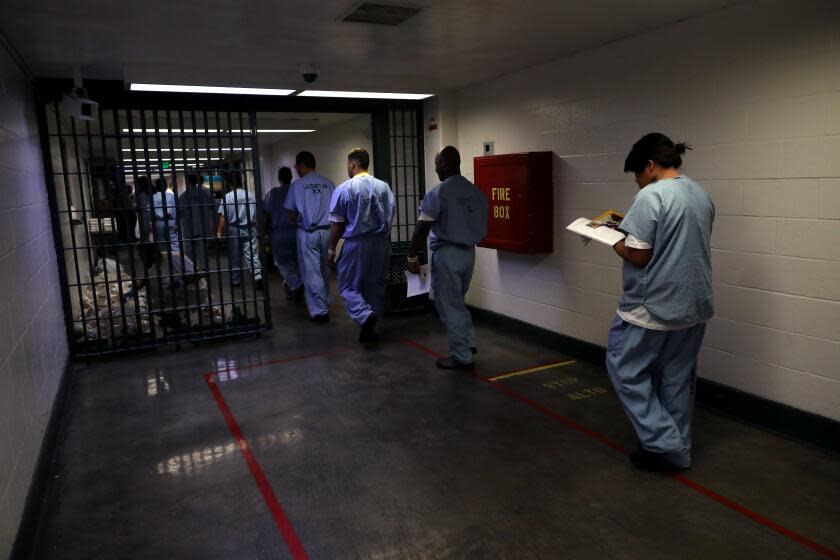Letters to the Editor: Opposing views on Proposition 47 and a new 'tough on crime' ballot measure

To the editor: UC San Francisco Professor Meghan Morris asks voters to reject a tough-on-crime ballot measure because it would crowd prisons.
Interestingly, on April 30, you ran an op-ed article calling on California to close under-used prisons to save money. Give me a break.
A high prison population is the natural outcome of a high crime rate. We ought to do the hard work of getting people to commit less crimes.
The perverse idea of treating the prison population as a "crisis" on its own and trying to solve it by releasing people from prison or going easier on certain crimes has led us to our current mess, where some feel emboldened to commit smash-and-grab robberies in our state with little consequence.
Alan Osprey, Laguna Beach
..
To the editor: I have spent my life watching the "punish, punish, punish" crowd repeatedly increase criminal penalties and enact laws that are designed to harm people after they have served their time.
The result has been an utterly predictable disaster: huge swaths of the population imprisoned, recidivism because people can't find jobs or homes, and out-of-control spending on incarceration.
Meanwhile, sociologists have done study after study showing that there are better ways to reduce crime — ways that are cheaper, more effective and more humane. But the reactionaries refuse to acknowledge science, instead insisting that even more viciousness toward offenders is the only acceptable approach.
It is no wonder that we are failing. I despair of ever living to see a sane approach to crime.
Geoff Kuenning, Claremont
..
To the editor: As someone who has spent two years working with a family member who battles addiction and has survived a fentanyl overdose, I find Morris' opinion piece appalling.
It's crucial to focus on the facts and the contents of the ballot measure itself. The measure will significantly increase treatment access with a straightforward choice: Get the necessary treatment, and upon program completion, records will be expunged.
Letting people die from drug overdoses on our streets is inhumane. Proposition 47 has undermined the benefits of drug courts, so we need to incentivize and encourage more people with severe addictions to seek treatment.
This measure is going to make a huge difference in getting people into treatment.
Joanne Genis, Chino Hills
..
To the editor: Once again, The Times has published an article asserting that Proposition 47, which passed in 2014, "made shoplifting under $950 a misdemeanor."
The Legislature did that in 2010 in a bill signed by Republican Gov. Arnold Schwarzenegger, AB 2372, and Proposition 47 affirmed that and included other kinds of theft. AB 2372 was enacted simply to keep the law current in light of inflation. If no inflation adjustment was ever made, then a $50 theft would be a felony in California, as it was in 1872.
Moreover, even after AB 2372, the value at which a theft becomes a felony is still lower in California than in 40 other states (it is $2,500 in Texas). Perhaps the rush to change Proposition 47 would be less furious if the facts were correctly stated.
John Hamilton Scott, Sherman Oaks
This story originally appeared in Los Angeles Times.

